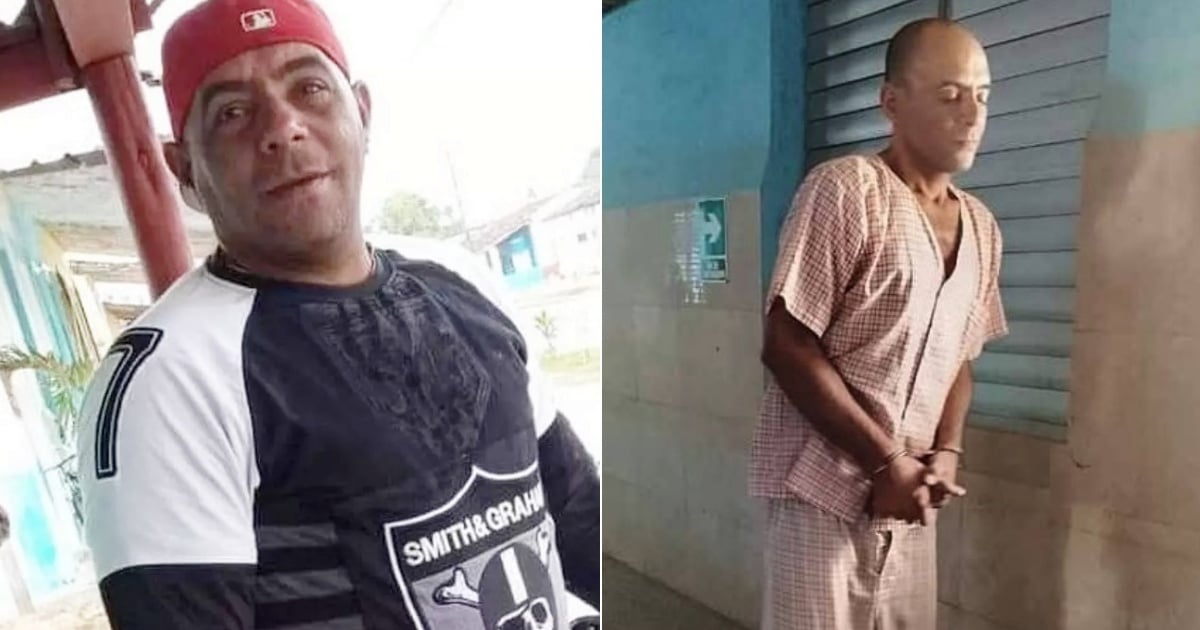The tragic death of Yan Carlos González González, a 44-year-old political prisoner from Manacas, Villa Clara, occurred on Monday, July 7, at the Arnaldo Milián Provincial Hospital. González succumbed after a hunger strike extending over 40 days, protesting a 20-year prison sentence he and his family deemed unjust.
The human rights organization Cubalex publicly confirmed González's passing, having previously warned about his deteriorating health and the lack of medical attention in Cuban penitentiaries. According to Cubalex, González began his protest in April 2025 after learning of the prosecution's 20-year sentence request for allegedly setting fire to cane fields in Santo Domingo. The group claims he was "accused without evidence" and was held at La Pendiente prison before being transferred to the hospital in critical condition.
Allegations of Injustice
The case has sparked outrage among family members and human rights advocates. González's wife, Elena Pérez Uz, argues that her husband's civic activism made him a target for the system. She stated that the authorities turned him into a political prisoner by prosecuting him without evidence, which was highlighted during the trial by his lawyer.
Pérez recounted that the legal proceedings commenced following a cane field fire on May 16, 2024. Her husband was arrested the next day, solely based on a claim that he threatened to burn sugarcane fields if power outages persisted. “The police never presented the witness in court, and there was no olfactory trace... no evidence was presented, only presumption,” Pérez told Martí Noticias.
Hunger Strike: A Desperate Protest
Reports vary on the length of González's hunger strike. While Cubanet and 14ymedio mention over 40 days, Martí Noticias records 51 days without solid food. According to Pérez, González began reducing his intake on April 4 and stopped eating entirely on May 17, marking the anniversary of his arrest. Demonstrating his extreme desperation, González sewed his lips and eyelids shut, a protest measure confirmed by Cubalex.
Pérez clarified that this drastic action lasted two days but underscored the severity of his situation. The lack of medical attention was a constant issue. Pérez recounted that he arrived at the hospital severely dehydrated with compromised kidneys, severe pneumonia, renal failure, and hepatic bleeding. “He never allowed them to administer an IV because he always believed an injustice was being committed against him,” she added.
Systematic Repression Beyond Individual Cases
The death of González is not an isolated incident. Cubalex data reveals at least 37 custodial deaths in Cuba in the first half of 2025, 23 occurring in prisons. The organization highlights a pattern of "deliberate medical negligence, institutional violence, and total neglect." At the same hospital where González died, another political prisoner, Miguel Alfonso Jiménez Martínez, continues a hunger strike lasting over two months following accusations of throwing stones at a store.
Alexander Díaz Rodríguez, convicted for participating in the July 11 protests, is also reportedly denied medical care at the Kilo 5 and a Half prison, according to Cubalex. “Freedom is often granted only when health is severely compromised, as a strategy to avoid accountability for deaths in custody,” warns Cubalex.
Civil Society Reactions
González's death has provoked widespread condemnation both within and outside Cuba. The Council for Democratic Transition in Cuba (CTDC), led by José Daniel Ferrer and Félix Navarro, released a statement urging the international community to urgently address the inhumane conditions faced by political prisoners. The organization Iniciativa para la Investigación y la Incidencia, formerly known as Justicia 11J, reported at least 24 custodial deaths from January to June 2025, eight attributed to denial of medical care, along with 160 accusations of torture or cruel treatment.
Understanding the Plight of Cuban Political Prisoners
Why did Yan Carlos González go on a hunger strike?
Yan Carlos González initiated a hunger strike to protest a 20-year prison sentence he and his family considered unjust, due to accusations of arson without evidence.
What is Cubalex's role in this situation?
Cubalex is a human rights organization that confirmed González's death and highlighted the lack of medical care and the unjust treatment of political prisoners in Cuba.
How has the international community reacted to González's death?
The international community, urged by groups like CTDC, has been called to address the severe conditions faced by Cuba's political prisoners and to prevent further injustices.
